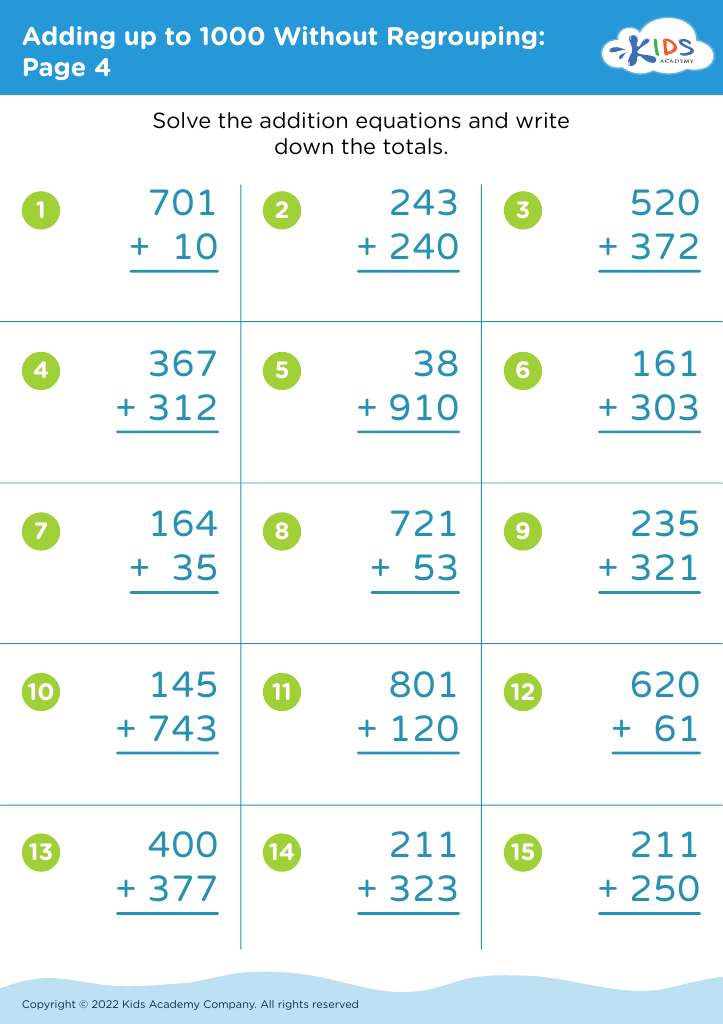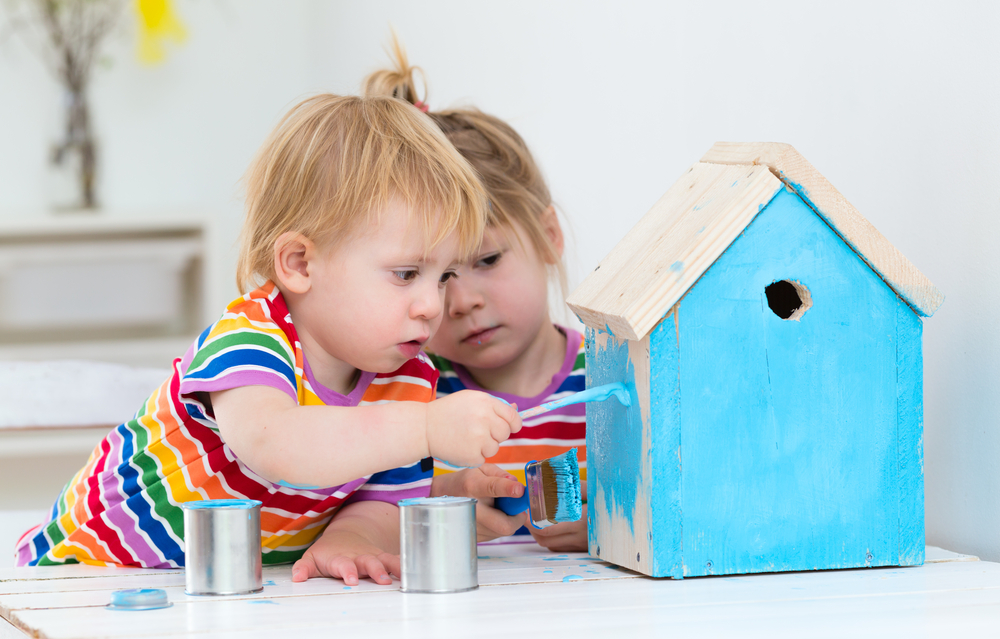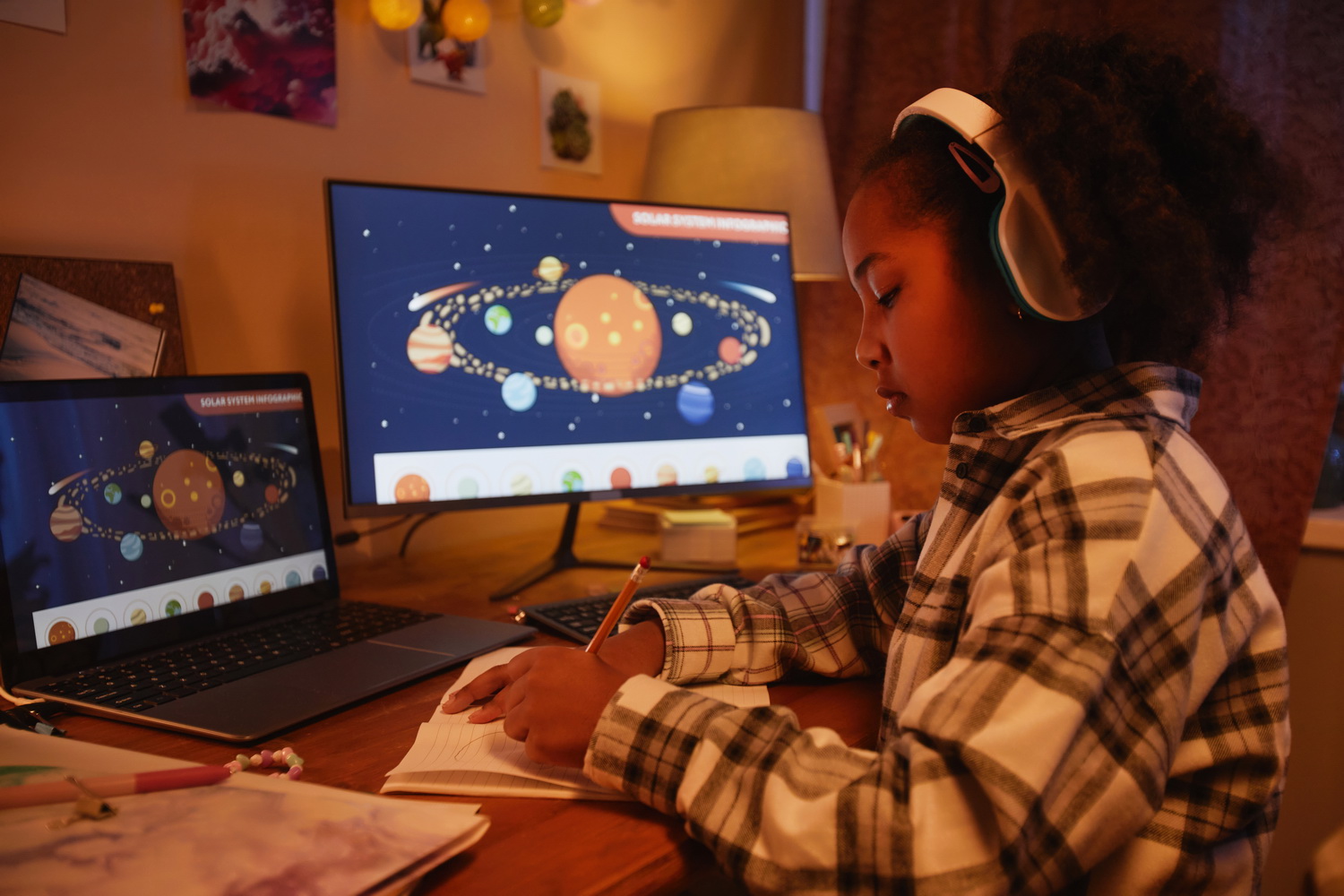Memory enhancement Worksheets for Ages 6-7
7 filtered results
-
From - To
Boost your child's memory skills with our engaging Memory Enhancement Worksheets tailored for ages 6-7. Designed to make learning fun, these worksheets encourage cognitive development through various activities that promote memory retention. From matching games to pattern recognition tasks, each worksheet is crafted to stimulate young minds and enhance their concentration. Our resources are perfect for home or classroom use, helping children develop essential skills in a playful way. Watch your child thrive as they embark on entertaining exercises that strengthen their memory abilities, preparing them for future academic success. Explore our collection and unlock the power of their imagination today!
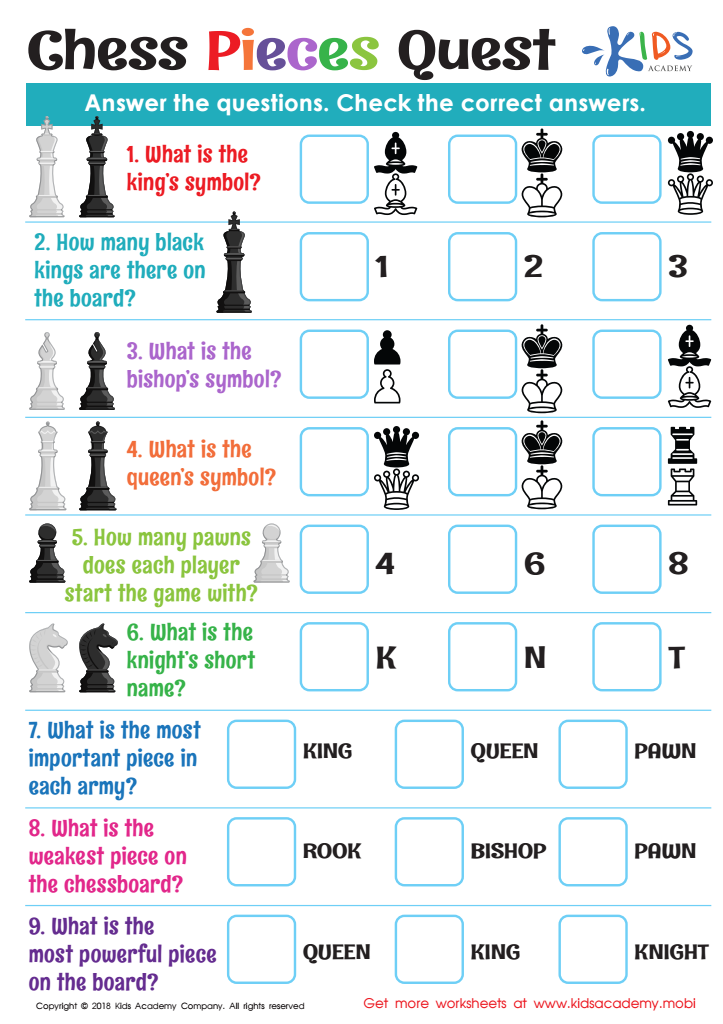

Chess Pieces Quest Worksheet
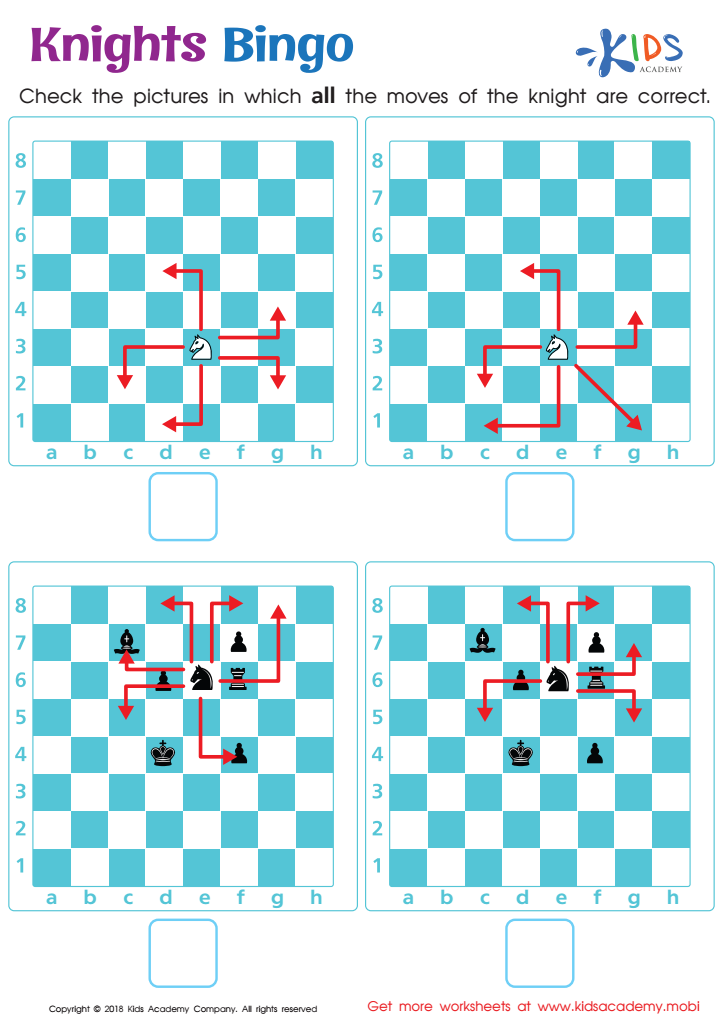

Knights Bingo Worksheet
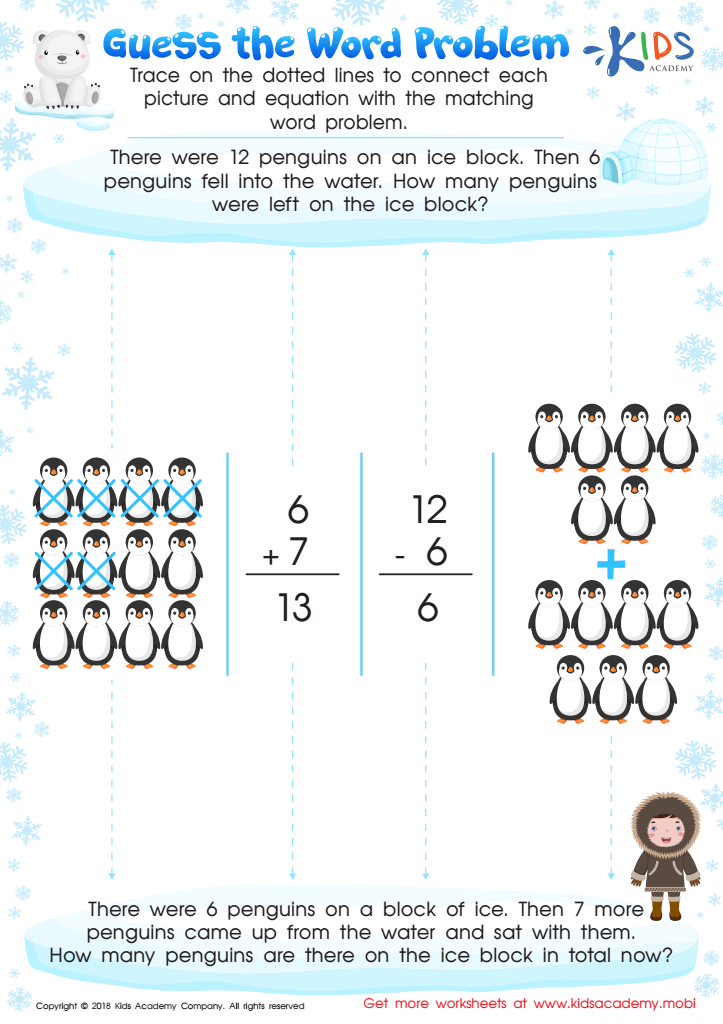

Guess the Word Problem Worksheet
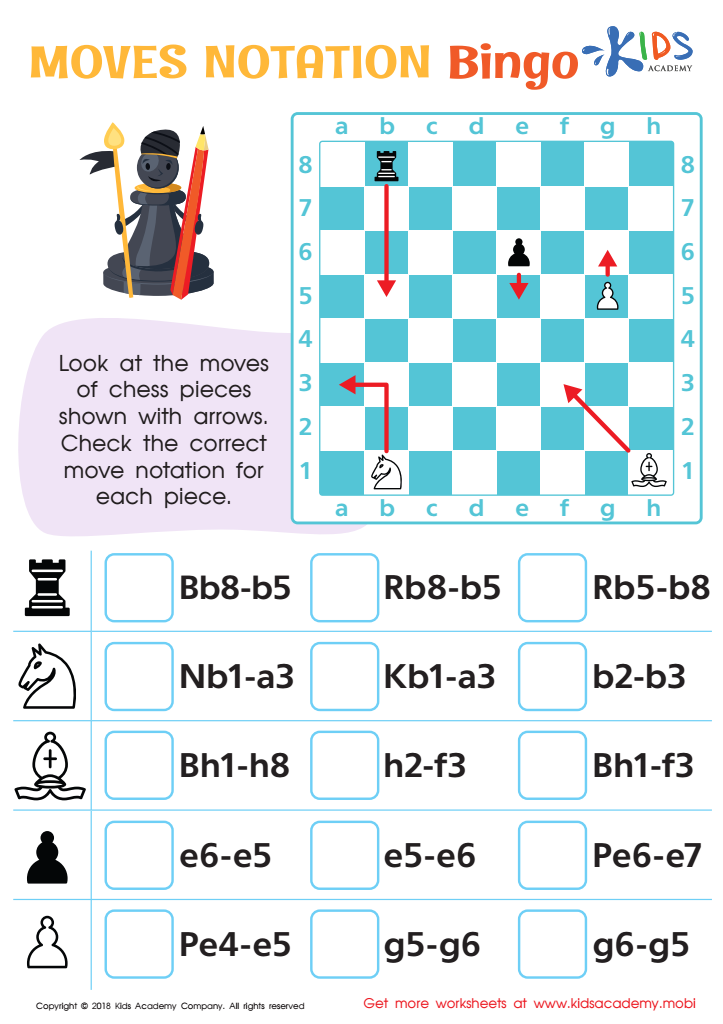

Moves Notation Bingo Worksheet
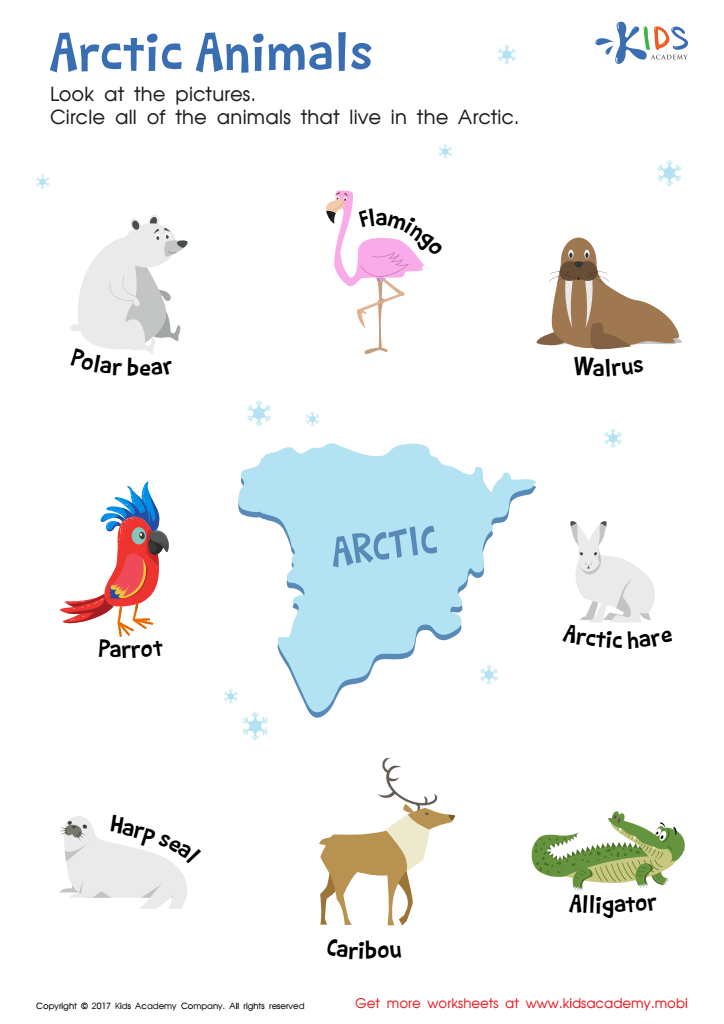

Arctic Animals Worksheet
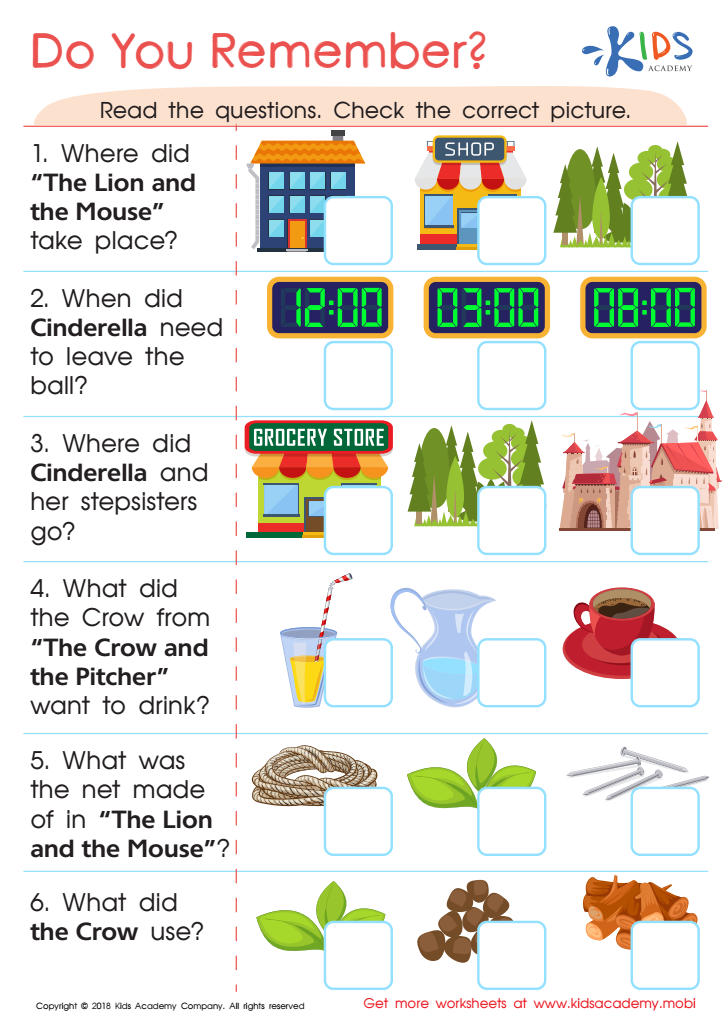

Do You Remember? Worksheet
Memory enhancement in children aged 6-7 is crucial for their cognitive development and academic success. During this early stage, children are developing foundational skills essential for their future learning. Memory plays a pivotal role in various aspects of education, from comprehending new concepts to recalling information needed for problem-solving. By fostering memory improvement, parents and teachers can help children become more agile learners, enhancing their ability to retain information, which supports overall academic performance.
Moreover, strong memory skills contribute to a child’s confidence and motivation. When children can remember facts and ideas, they participate more actively in class discussions, leading to greater engagement. This can prevent feelings of frustration or inadequacy, helping to build a positive mindset towards learning.
Additionally, developing memory enhances social skills. Children who can remember names, routines, and details about their peers can cultivate relationships and teamwork skills, which are essential as they navigate their social environment.
Encouraging memory enhancement through play, storytelling, and interactive activities can make learning enjoyable and effective. Ultimately, prioritizing memory development equips children with the tools they need to thrive academically and socially, laying a sturdy foundation for lifelong learning.
 Assign to My Students
Assign to My Students


